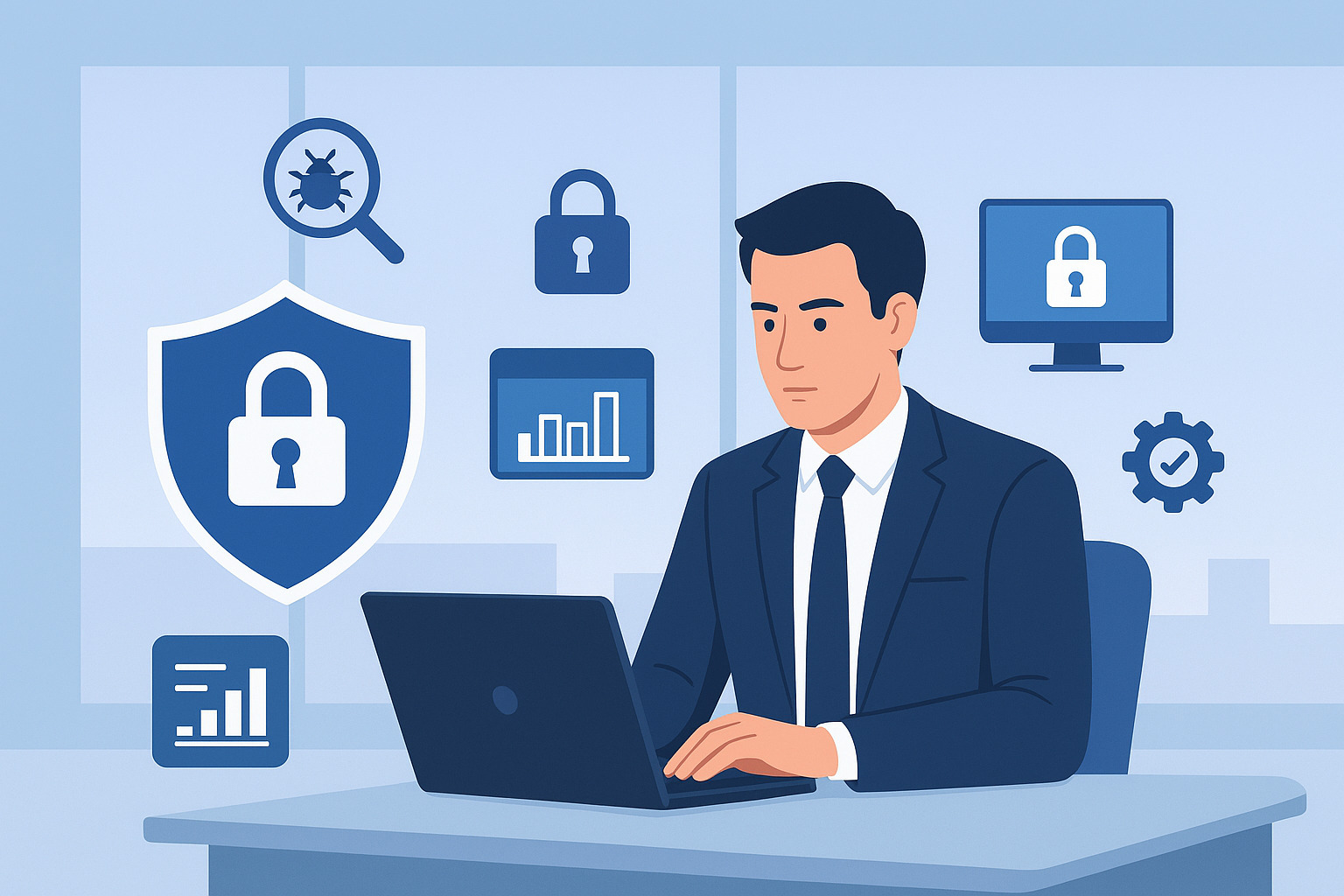Cyber Security Expert Job Description: Roles, Responsibilities, and Skills
- 1 min read
Explore the key roles, responsibilities, and skills of a Cyber Security Expert to safeguard organizations against modern cyber threats.

Introduction
In today’s digital-first world, cybersecurity is more critical than ever. Organizations face increasing threats from cyberattacks, data breaches, and ransomware. Hiring a skilled Cyber Security Expert is essential to protect sensitive information and maintain trust with clients and stakeholders.
At Euro IT Sourcing, we understand the growing demand for highly qualified cybersecurity professionals. This article outlines the key roles, responsibilities, and skills organizations should seek when hiring a Cyber Security Expert, helping businesses build resilient IT defenses.
Whether your organization is scaling its IT infrastructure or enhancing security protocols, knowing what a Cyber Security Expert brings to the table ensures better alignment between business goals and security strategies.
Key Roles of a Cyber Security Expert
A Cyber Security Expert plays a critical role in safeguarding digital assets. Their primary responsibilities include:
- Threat Identification & Analysis: Monitor systems to detect vulnerabilities, emerging threats, and potential breaches.
- Security Policy Development: Design and enforce IT security policies, standards, and procedures.
- Incident Response: Lead the investigation and resolution of security incidents, minimizing business impact.
- System Monitoring: Use tools like SIEM (Security Information and Event Management) to track network activity.
- Compliance Assurance: Ensure adherence to regulations such as ISO 27001, GDPR, or NIST standards.
Reference: NIST Cybersecurity Framework

Core Responsibilities
Cyber Security Experts manage both proactive and reactive security measures to protect organizational assets. Responsibilities typically include:
- Conducting risk assessments to identify potential threats.
- Implementing firewalls, antivirus, and intrusion detection systems.
- Managing user access controls and authentication protocols.
- Regularly performing security audits and penetration tests.
- Collaborating with IT teams and stakeholders to maintain a secure environment.
- Providing security awareness training for employees.
Essential Skills for Cyber Security Experts
A successful Cyber Security Expert requires a blend of technical expertise and analytical thinking:
Technical Skills
- Network security and architecture
- Cloud security and virtualization
- Encryption technologies
- Endpoint protection and threat mitigation
Analytical Skills
- Risk assessment and management
- Vulnerability scanning and threat analysis
- Incident investigation and root cause analysis
Soft Skills
- Effective communication with non-technical stakeholders
- Problem-solving and decision-making under pressure
- Continuous learning mindset to stay ahead of evolving threats
Metrics & Outcomes
Hiring a skilled Cyber Security Expert helps organizations achieve measurable benefits:
- Reduced security incidents by 30–50% within the first year (depending on infrastructure maturity).
- Faster incident response times, reducing downtime and business disruption.
- Compliance with international standards, avoiding penalties and reputational risks.
- Enhanced employee awareness, decreasing the risk of phishing and social engineering attacks.
Risks & Mitigations
Risk & Mitigation Lack of skilled experts & Invest in continuous training and certification programs. Outdated security tools & Regularly update software and implement proactive monitoring. Insufficient policies | Develop clear IT security frameworks aligned with industry standards.
Key Takeaways
- Cyber Security Experts are vital for protecting organizational data and IT infrastructure.
- Key roles include threat analysis, policy development, incident response, and compliance oversight.
- Essential skills combine technical expertise, analytical thinking, and strong communication.
- Measurable outcomes include reduced incidents, faster response, and improved regulatory compliance.
- Organizations must invest in the right talent and tools to mitigate evolving cyber risks.
Author & Contact Info
Author: Matt Borekci
Contact Us: Euro IT Sourcing

Tech Hiring Trends: What Skills Are in Demand in 2025?
Discover the most in-demand tech skills for 2025! From AI to cybersecurity, stay ahead in the job market with these essential trends.

How Outsourcing Partners Are Tackling Shadow IT Problems
Learn how outsourcing partners help businesses combat Shadow IT with better visibility, governance, and compliance while boosting digital security.